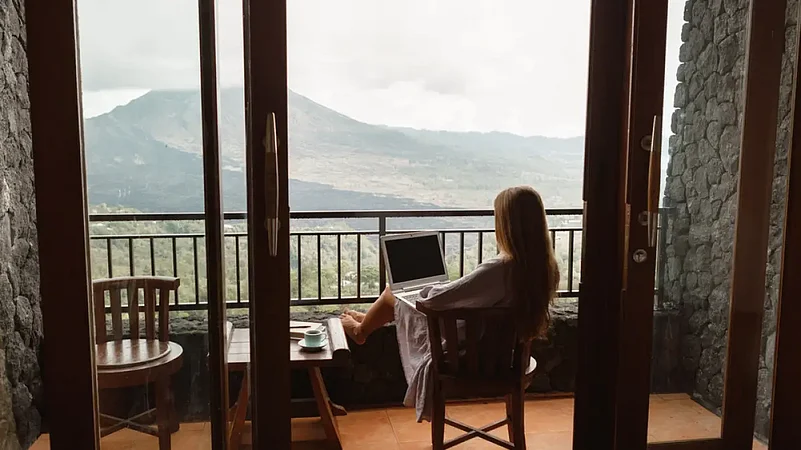In a world where people prefer remote working and heading to scenic places, there is one set of people who are in for a long haul. They not only enjoy being in one region and working, but they are also keen on knowing the culture of the region. They are not liking the rushed life and want to take it slow. Thus, the concept of slomads is introduced. Slomads are travelling the world and working but are choosing to spend long and quality time at one location. This is not only a rich cultural experience but promotes sustainability.
According to media reports, experts and researchers have revealed that digital nomads in their twenties are not the only ones heading to remote workspaces. Even people in their thirties and forties with partners and children are heading to different work locations.
With companies now allowing workers to work remotely and various countries offering people visas for up to two years, has surely tempted travellers. With unprecedented covid-19 lockdowns and different travel restrictions on countries, now travellers can finally step out as most countries have lifted their travel restrictions.
Due to this, over-tourism has increased. This has led to places now being overcrowded. Along with this, a severe impact on the environment can also be seen.
With limited information available, slomads are leaving behind carbon footprints which are not only less but are increasing the option of sustainable accommodation. With this, people are consciously contributing and investing in green projects.
Yet, climate campaigners do not quite believe in it. According to media reports, this depends on the travellers choosing air travel which produces three per cent of global greenhouse gas emissions.
As per a travel guide published in a media report, almost one-third of nomads move every one to three months whereas 55 per cent enjoy working from one location and shift after three months or more.
Various destinations are allowing people to stay for work up to two years. They are Aruba, Croatia, Estonia, Norway, Indonesia, Malta, Barbados and Cape Verde are providing digital nomad visas.





















